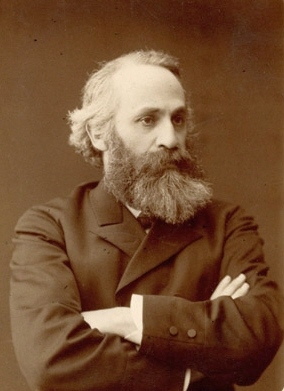In the grand symphony of 19th-century classical music, few voices resonate as powerfully and eloquently as that of Karl Davydov. Born on March 15, 1838, in Goldingen, Latvia (then part of the Russian Empire), Davydov would grow to become one of the most influential cellists and composers of his time, earning the moniker “The Tsar of the Cello” from none other than Pyotr Ilyich Tchaikovsky.
Davydov’s journey into the world of music began early, nurtured by a family that valued artistic expression. Initially trained as a mathematician, he soon found his true calling in music, particularly the cello. His passion for the instrument led him to study under Heinrich Schmidt in Moscow, where his exceptional talent quickly became apparent.
As a performer, Davydov was renowned for his technical brilliance and expressive playing. His mastery of the cello was such that he could make the instrument sing with a voice-like quality, a skill that would influence generations of cellists to come. Davydov’s performances were characterized by their emotional depth and technical precision, captivating audiences across Europe and Russia.
But Davydov’s contributions to the world of music extended far beyond his performances. As a composer, he created works that showcased the full expressive potential of the cello. His compositions, including four cello concertos and numerous smaller pieces, are notable for their lyrical melodies and innovative use of cello technique. The “Concerto No. 2 in A minor, Op. 14” remains a staple of the cello repertoire, challenging and inspiring cellists to this day.
Perhaps Davydov’s most significant contribution to the world of music was his role in advancing cello technique. He developed new methods of fingering and bowing that expanded the instrument’s expressive capabilities. His approach to cello playing, which emphasized a singing tone and expressive phrasing, had a profound influence on the development of cello technique in the late 19th and early 20th centuries.
As a teacher, Davydov’s influence was equally profound. He served as a professor at the Saint Petersburg Conservatory from 1862 until his death, shaping the talents of countless young musicians. His pedagogical approach emphasized not only technical proficiency but also musical expression and creativity. Many of his students went on to become renowned cellists and teachers in their own right, spreading Davydov’s methods and philosophy throughout Europe and beyond.
Davydov’s impact on the musical world extended beyond his roles as performer, composer, and teacher. He was also an influential music critic and writer, penning articles that helped shape the discourse around classical music in Russia. His writings often advocated for the promotion of Russian music and musicians, contributing to the development of a distinctly Russian school of musical thought.
Throughout his career, Davydov formed close relationships with many of the leading musical figures of his time. His friendship with Tchaikovsky was particularly significant, with the great composer dedicating his “Pezzo Capriccioso” to Davydov. This relationship speaks to Davydov’s standing in the musical world of 19th-century Russia and his influence on the development of Russian classical music.
Karl Davydov’s life came to an untimely end on February 26, 1889, in Moscow. However, his legacy lives on through his compositions, his technical innovations, and the generations of cellists he influenced. Today, as we rediscover and celebrate Davydov’s music, we gain a deeper appreciation for the rich history of the cello and its role in classical music.
Davydov’s life and work remind us of the power of dedication and innovation in music. His story serves as an inspiration to aspiring musicians, demonstrating how one individual’s passion and creativity can shape the course of musical history. As we continue to explore Davydov’s musical legacy, we honor not just a talented cellist and composer, but a visionary who helped elevate the cello to new heights of expressiveness and technical possibility.

